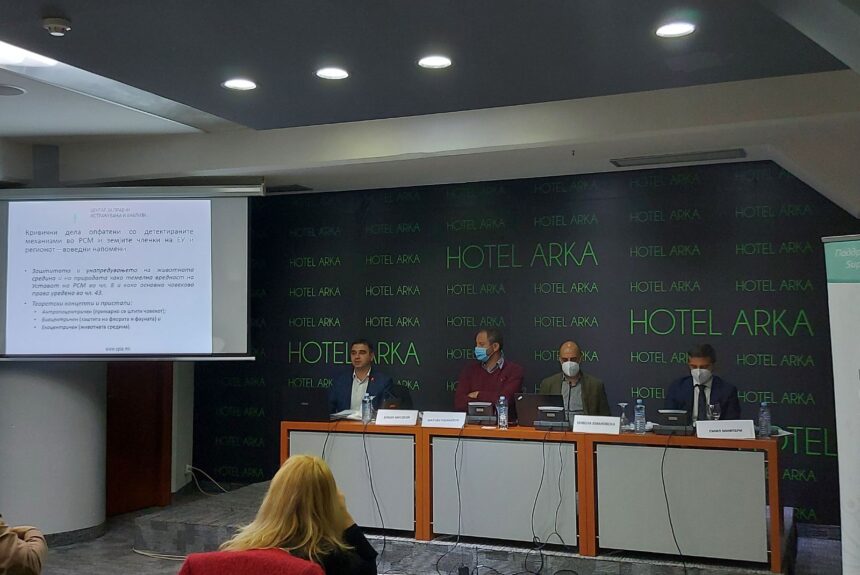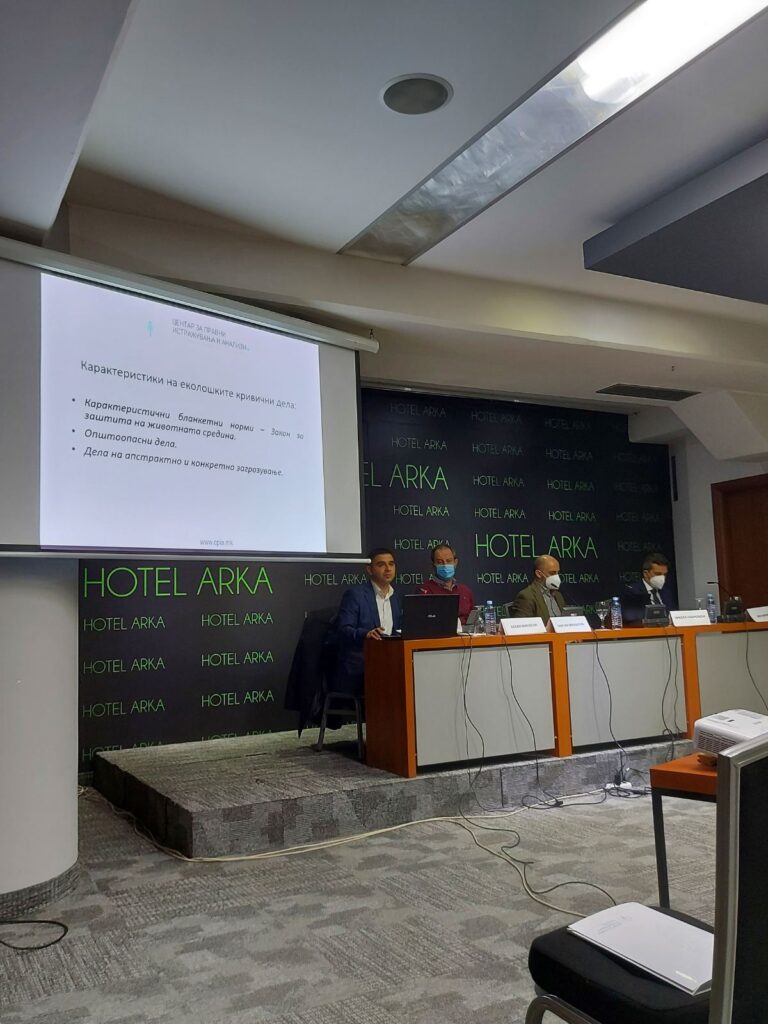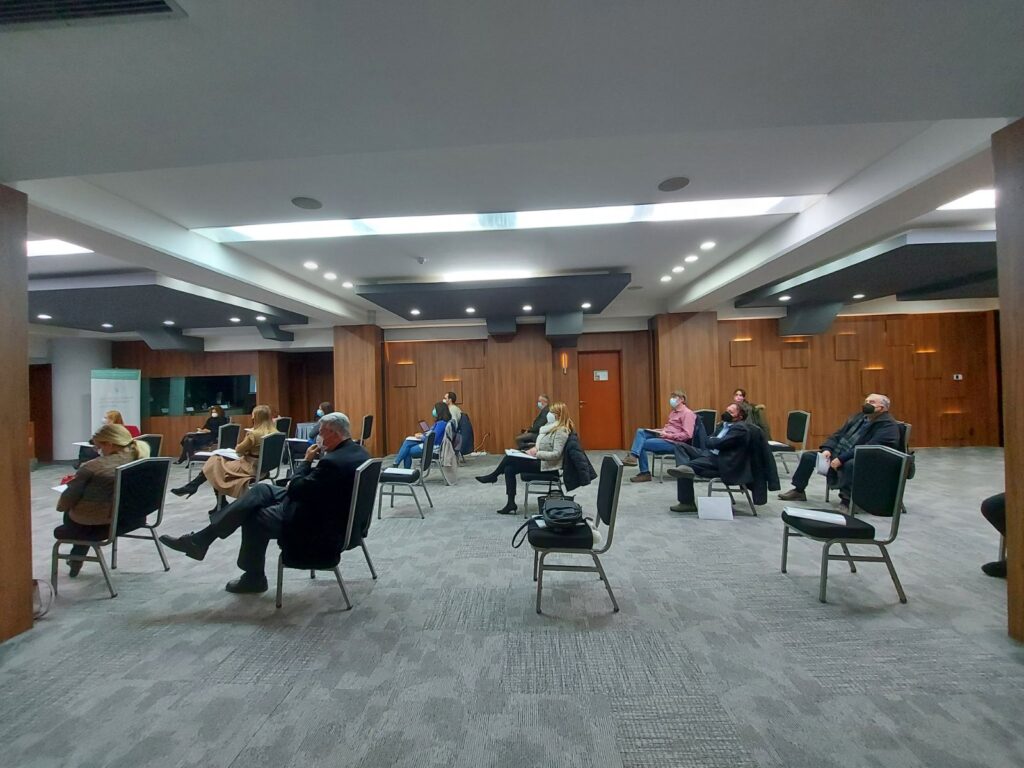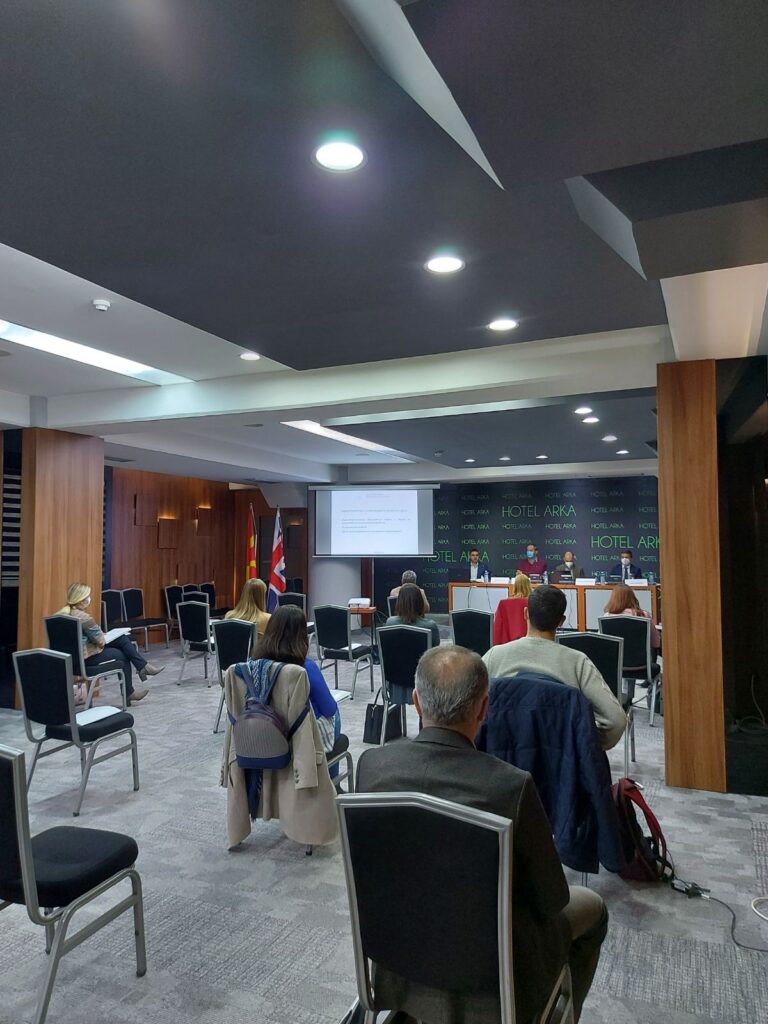On 02.12.2021, the Center for Legal Research and Analysis at the Arka Hotel presented the Comparative Analysis of Strategies for Dealing with Environmental Crime and the proposed new set of criminal provisions for environmental protection in the Criminal Code. The presentation was part of the project “Environmental Governance Project” funded by the Government of the United Kingdom, with the support of the British Embassy Skopje. The presentation was attended by members of the Platform for Environmental Justice, civil society organizations and experts working in the field of environmental protection, and members of the working group for amendments to the Criminal Code.
The presentation started with an introductory address by the program manager at the CLRA, Nikola Jovanovski, who introduced the participants to the purpose and the need for this comparative analysis. Namely, the comparative analysis of strategies for dealing with environmental crime provides an overview of the mechanisms for effective prevention and protection of environmental crime and an overview of the international practice of the European Court of Human Rights and the European Court of Justice.
Тhe authors of the analysis, the technical expert M.Sc. Marjan Mihajlov and the legal expert Prof. Dr. Boban Misoski had the next word. Mihajlov gave a detailed overview of the mechanisms for effective prevention and protection of environmental crime, how this crime is regulated in EU legislation, covering the experiences of the United Kingdom, Italy, Croatia, and France. One of the biggest problems that Mihajlov singled out are the problems with the identification of crimes in the environment, problems with the identification of criminals, the weak capacity of the executive bodies as well as the mild penal policy. Professor Misoski focused on the situation in R. North Macedonia and presented the findings from the empirical analysis of court practice in the period from 01.01.2017 to 31.07.2021 analyzing the verdicts for crimes against the environment and nature according to the court where they were convicted, the type of verdict, the crime committed and the type of sanction and amount.
In the second part of the presentation, the lawyer Emil Miftari presented the new set of proposed criminal provisions that were prepared together with prof. Olga Koshevaliska and biologist Ana Cholovikj Leshoska with previous consultations of two focus groups with civil society organizations working in the field of environment and the working group for amendments to the Criminal Code. In the part of the open discussion, the participants stated that the cooperation of all relevant stakeholders is necessary for the effective and efficient protection of the environment.





